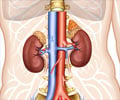A survey reported at the ESMO 2014 Congress reveals that a growing number of oncologists in Greece are female.

"Women are indeed increasingly choosing oncology specialties in Greece, however, most decision-making posts are still dominated by men across the profession, in private practice, academia and national health environments. This needs to change," she said.
The survey of 80 female members of the Hellenic Societies of Medical, Radiation and Surgical Oncology showed that while women were widely represented in workplaces, team leaders were men in 82% of cases.
"The survey also showed that women oncologists are hugely under-represented in international scientific meetings and scientific society boards, and still have difficulties travelling abroad and accessing education opportunities at international level," Linardou said.
The study was conducted as part of a European initiative of and for female oncology professionals, known as "Women for Oncology" (W4O)[1], launched by the European Society for Medical Oncology in 2013.
The Greek national equivalent, called 'W4O-Hellas', aims to create a support network for female oncologists, but also to provide a platform of direct communication and essential contribution from women doctors to women cancer patients, Linardou explains.
Advertisement
The group has fund-raising events and public education meetings planned for the immediate future and an inaugural event is scheduled for Sunday, 12 October 2014, in the Athens Concert Hall (Megaron Mousikis).
Advertisement
"In Europe we are still suffering considerable discrepancies in terms of career opportunities between men and women," said Dr Solange Peters, ESMO Executive Board member, active in the first ESMO W4O Forum in 2013. "Women still have difficulties to access leadership positions, and for them the compatibility between professional career and daily life is still more difficult as compared to male counterparts."
The Greek oncology community should be congratulated to have taken this initiative so seriously, taking into consideration not only women doctors but also creating a link between female practicing oncologists and female cancer patients, Peters added.
"On behalf of the ESMO Women for Oncology initiative, we encourage female colleagues in all European countries to launch similar national projects and support the career of female oncology professionals," she concluded.
Source-Eurekalert










